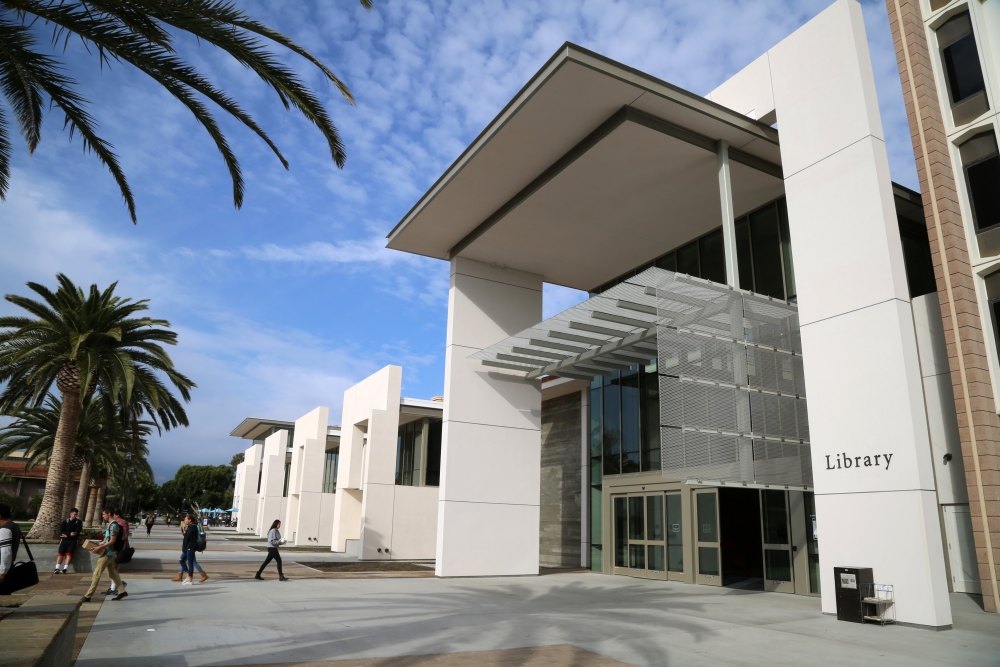
In the Public Interest
Public research university, publicly available research. Sounds logical, but that’s not always — or even often — the way it goes. UC Santa Barbara, and the University of California at large, aim to change that.
Affirming its belief that research generated at a public institution should indeed be available to the public at no cost — and its commitment to achieving that goal — UC Santa Barbara has now signed the OA2020 Expression of Interest. OA2020 is an international initiative that is exploring ways of advancing open access in partnership with scholars, libraries, publishers and funding agencies.
The move by the campus comes closely on the heels of the UC’s recent termination, systemwide, of its subscriptions with scientific publisher Elsevier, after protracted negotiations failed to net the university’s must-have result: securing universal open access to UC research while containing the rapidly escalating costs associated with for-profit journals.
Reflecting the changing tide, the UC has just secured an open-access deal with Cambridge University Press, its first such agreement with a major publisher.
“We’ve been on this path a long time — UC is very committed to open access,” said UC Santa Barbara Librarian Kristin Antelman, who is closely involved in these tandem efforts to secure universal open access to university research. “It’s deeply embedded in our mission as a public institution, trying to enable the research to be available to other researchers around the world and applied to benefit society. It couldn’t be more core to our mission, and we’re at the point where the time for action has come, the time to speak with our dollars and our powerful faculty voices and the weight of the UC.”
With its Expression of Interest, UC Santa Barbara is now a signatory to OA2020, which was born of an open access conference in Budapest in 2003. To date, 136 scholarly organizations worldwide, including multiple UC campuses, have signed on.
According to the OA2020 organization, based at the Max Planck Digital Library in Germany, “nearly 85% of the world’s scholarly outputs are still locked behind paywalls, inhibiting the full impact of research and putting enormous strain on institutional budgets.”
That paywall is the primary sticking point for both OA2020 and the failed Elsevier negotiations. It’s a model employed broadly by scientific publishers, which charge libraries for subscriptions while at the same time charging additional fees to researchers, publishing in those same journals that the library has already purchased access to, who want to publish their articles open access.
“OA2020 is simply a commitment to transform scholarly communication toward openness by 2020,” explained Antelman, “by entering into transformative agreements that show significant progress toward open access in that timeframe, with the same amount of money —not paying twice to do it.”
And so it goes with Elsevier — the largest scholarly publisher in the world, disseminating about 18 percent of journal articles produced by UC faculty. The UC, in negotiations led by the California Digital Library, sought a contract that integrated subscription charges and open access publishing fees, thereby making open access the default for any article by a UC scholar and stabilizing journal costs for the university. Thus far, the company has declined to accept those terms.
The main aim of such negotiations, and of the OA2020 initiative, is a move toward open access publishing, which makes research freely available to anyone, anywhere in the world, and fulfills UC’s mission by transmitting knowledge more broadly and facilitating new discoveries that build on the university’s research and scholarly work. This also follows UC’s faculty-driven principles on scholarly communication.
Access to a single scientific article, via some journals, can run around $40. What if you need to read a dozen articles? Or what if you’re a student and even one $40 charge is too much?
“It’s about reclaiming control of scholarly communication and scholarly outputs in the academy,” Antelman said. “It’s about openness and making scholarship available everywhere in the world, not just for rich western universities that can afford to buy it. It’s about stimulating innovation, entrepreneurship and business development as well as bringing UC research to bear on public policy.
“Our research is largely publicly funded and it should really benefit science and society at large and not just those who can afford these extremely expensive journal packages,” she added. “The goal is that UC reserves the right to disseminate the research that is created here and funded by the university or by public research funders.”
Writing together upon signing the OA2020 Expression of Interest, Executive Vice Chancellor David Marshall, Academic Senate Chair Henning Bohn and Antelman stated, “By means of UC’s negotiations with publishers for ‘publish and read’ contracts, which chart a path toward converting subscription journals to open access while controlling costs, UC Santa Barbara is actively advancing the 0A2020 Initiative’s core transformation mission.
“We recognize that there is no single, or best, path to open access,” they went on. “During this transitional period, we need to consider how to ensure that open access publication is accessible to all authors, and that both individual authors and scholarly societies be given the support they need to make the transition.”



